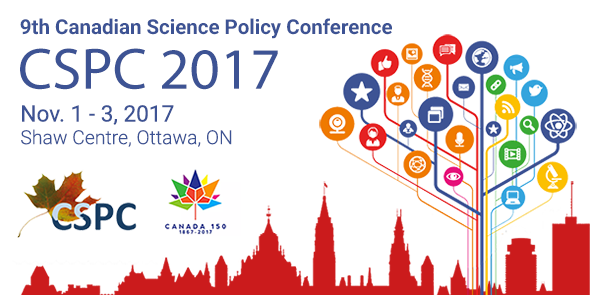Because 2017 is Canada’s 150th Anniversary, the CSPC themes are being structured within the following context:
- How effectively have we used science-based knowledge to meet Canada’s challenges over the past 150 years and also today?
- How should we use science-based knowledge more effectively over the next 50 years to meet Canada’s challenges?
And here are the five themes of CSPC 2017:
- Evolving our economy from resource based to knowledge driven
- Ensuring Canada’s position in the world as a powerful peace keeping, innovative, diverse nation
- Ensuring an effective federal system with alignment of the interests and values of regions and sectors
- Sustainability of our environment, natural resources, and universal health care system
- A science enterprise that is excellent, creative, productive and training talent for future needs and opportunities
- Changing geography of knowledge production and knowledge consumption
- Convergence , interdisciplinary science, the role of social sciences and the arts
- Big science: role in knowledge production; role of roadmaps
- Citizen science: engaging citizens in knowledge production
- Funding mechanisms: new realities, new directions
- New STI institutions and mechanisms of community engagement
- Technology foresight
- The impact agenda: measuring what difference science makes; creating the conditions for impact
- Balancing accountability and productivity
- The role of cities, provinces and territories
- Knowledge for policy development
- Science and politics: interdependencies and tensions
- The science – policy interface in a federal system: federal, provincial & territorial interactions
- Decision making in a complex and contested sphere
- Lessons from the coal face: case studies of evidence-based decision making
- Knowledge for innovation
- The innovation ecosystem: system thinking; system analysis
- SMEs growth and scale up and designing effective supply chain
- Technology intensive multinationals: incentives to build vs attract
- Procurement and regulation: catalysts or barriers to innovation?
- Knowledge to meet global challenges
- Accessing STI insights and knowledge from the international community
- How science can help in a de-globalization era
- The role of science in positioning Canada in the international community
- Risk communication and social license
- Social media and science communication in public engagement
- Public perception of science and scientists
- Science culture and public engagement in science
- Science and social innovation in the age of post everything


